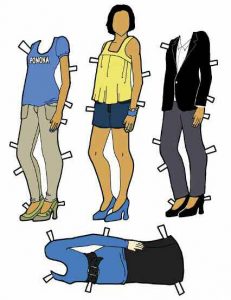 At Goldman Sachs in San Francisco, the ambience was formal and there were plenty of suits. At the consulting firm Accenture, one of the leaders wore jeans and sneakers but kept a blazer handy. At another company across the bay, the highest-paid employees wore shorts. (That would be the Golden State Warriors.)
At Goldman Sachs in San Francisco, the ambience was formal and there were plenty of suits. At the consulting firm Accenture, one of the leaders wore jeans and sneakers but kept a blazer handy. At another company across the bay, the highest-paid employees wore shorts. (That would be the Golden State Warriors.)
In the working world, clothes are a clue, but they might not tell the whole story. That’s just one of the lessons 12 Pomona College sophomores who identify as low-income or first-generation college students learned last fall in an innovative new program. Smart Start Career Fellows is designed to teach students about a working world unfamiliar to many of them. The program concluded in January with a three-day trip to the offices of seven Bay Area businesses.
One of the things Smart Start taught Leisan Garifullina ’20, an economics major from Russia, was the difference between business casual and business formal.
“I had this awkward situation last semester where I went to an information session—I think it was Citibank. I showed up in shorts and the nicest, nicest T-shirt that I had,” she says. Now, with the help of a stipend from the program, “I have business casual,” Garifullina says.
On the Bay Area trip, the students connected with new contacts as well as Pomona College alumni, visiting the offices of Kate Walker Brown ’07, an attorney at the National Center for Youth Law; Natalie Casey ’17, a software engineer at Salesforce; and Adam Rogers ’92, deputy editor at Wired magazine. The group also went to LumiGrow, a startup company that offers high-tech, energy-efficient horticultural lighting solutions, in addition to Goldman Sachs, Accenture and both the business offices of the NBA’s Warriors and a game that night against the Los Angeles Clippers.
Created with grants from Accenture and John Gingrich ’91, a managing director at the firm, the Smart Start program began last fall with a series of two-hour Friday night dinner sessions where the students took part in self-assessment exercises and various networking, résumé and career-coaching sessions.
“Every single place we went to in San Francisco, you could ask yourself, ‘OK, could I see myself coming in here every single day for a long period of time, maybe two, three or 10 years?’” mused Shy Lavasani ’20, an economics major from Millbrae, California, whose family emigrated from Iran. “Could I see myself really enjoying this job? It just really helped me thinking about that at every single location, what I really want, what I really need. It gave me a clear direction in terms of what I want to do.”
No job seemed out of reach, except maybe one. “I don’t think any of us were considering pro basketball,” he says. “It’s always nice to dream.”
